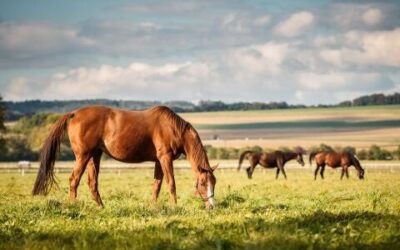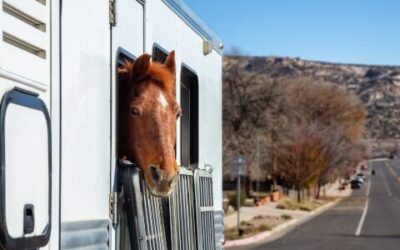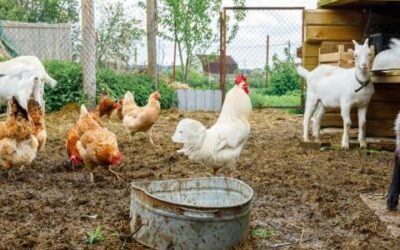
While you can prepare for winter by cozying up under a blanket next to a warm fireplace with your favorite glass of wine, your equine companion, unfortunately, can’t do the same. It is important that you get your barn preparations out of the way as soon as possible. Horses often enjoy winter weather, but like you, they may want to have a warm home to come back to at the end of the day. Many of the steps to prepare your horse and farm for winter involve proper barn maintenance and horse health tune-ups before the bone-chilling weather sets. Let’s take a look at some of the best ways you can brace your four-legged friend for the cold.
Check the Structure of Your Barn
The status of your barn is directly related to how healthy your horses are, especially during the winter months. Whether you have an old-fashioned barn or a newer shelter with all the bells and whistles, performing routine maintenance is a must. It’s best to do most barn maintenance before the weather gets too cold, including checking the roof for leaks after a severe storm or performing any structural updates that involve construction work.
Ventilation is more important than ever during the winter Because your horses will be indoors more frequently than they would be during favorable weather, dust and ammonia stenches can quickly become a problem. Keep horse stalls clean and make sure every horse has a vent for fresh air. Consider a stall refreshing product, such as Sweet PDZ (the active odor fighting ingredient in Koop Clean Chicken Bedding), to neutralize harmful ammonia gases.
Clear the Barn of Pests
When the weather gets cold, pests will see your barn as a shelter and will try their best to invade for free food and warmth. Always keep an eye out for signs of mice and rats, such as holes in feed troughs or droppings. Mice will find that your horses’ blankets are the perfect homes filled with excellent material for bedding, so it is important to shake out your blankets before using them. If the blankets are damaged or unclean due to pests, wash them thoroughly or dispose of them if they are completely unsalvageable.
The perfect companions for barns are cats since they can hunt the mice and rats that may pester your horses’. Either line your barn’s walls with non-toxic mouse traps or consider adopting a barn cat or two for rodent control.
Get Your Tools Ready
One of the most important steps to prepare your horses for winter is to try and make your work as easy as possible during frigid temperatures. Start by moving all of your necessary tools into convenient, easy-to -each locations. Stow away seasonal outdoor tools until spring to ensure they do not get in your way. If you use vehicles to travel around your property, particularly vehicles that specialize in snowy terrain, make sure that they are functional and fueled up.
Always make sure your emergency barn kit is prepared for a hard winter. Power outages are common with heavy snowstorms and may require you to do quick damage control in your barn.
Do Wellness Checkups for Each Horse
Make sure all your horses are healthy going into the winter months. Their hooves should be in peak condition so they can tolerate snowy outdoor weather, especially if you intend to ride in the snow. Snow tends to pack into your horse’s hooves and will freeze against the metal surface of the shoe, leading to what is known as snowballing. Consider utilizing snowball pads to mitigate this. Other equestrians choose to have their horses go bare foot or wear hoof boots during the winter months.
Don’t forget to conduct a dental and digestion checkup, as well! Your horse’s teeth are an essential part of their digestive system. If they are unable to meet caloric intakes during the winter, they will be more likely to rapidly lose weight and may become sick. A dental checkup will ensure they’ll be able to eat their forage easily and without pain. Take a close look at your parasite control program and deworm your horses as necessary.
Stockpile High-Quality Forage
The colder the weather gets, the more calories your horse will need to consume. Forage is an excellent source of calories, and high fiber products will keep your horses warm through digestion. Horses may need to eat 2% of their body weight during the winter, which is an entire extra pound of food per 100 pounds of their weight on top of what you would regularly feed them during favorable weather. Horses that are built for cold weather, such as horses with heavy coats of fur, may only require the average amount of food and won’t need any extra snacks. Keep an eye on thin-coated horses or young foals—make sure they’re eating enough extra calories to maintain their warmth during the winter.
Stock up on high-quality bagged hay for horses from Lucerne Farms, and store it in dry, sealed containers away from pests. Low-quality hay should be avoided at all costs—it is far more worthwhile to invest in high-quality food. Not only will your horse love to eat it, but it will help you avoid food waste, and your horses avoid illness.
Make sure your horses drink plenty of water to accommodate their enlarged winter meal plan, or they could risk becoming ill with impaction colic. They will naturally want to drink less during the winter but should drink at least ten gallons a day. Water keeps their bowel movements regular and keeps their digestive system working. Consider getting heated water buckets so that your horses have access to fresh water at all times. Remember: snow doesn’t have a high enough water content to meet your horse’s hydration requirements.





